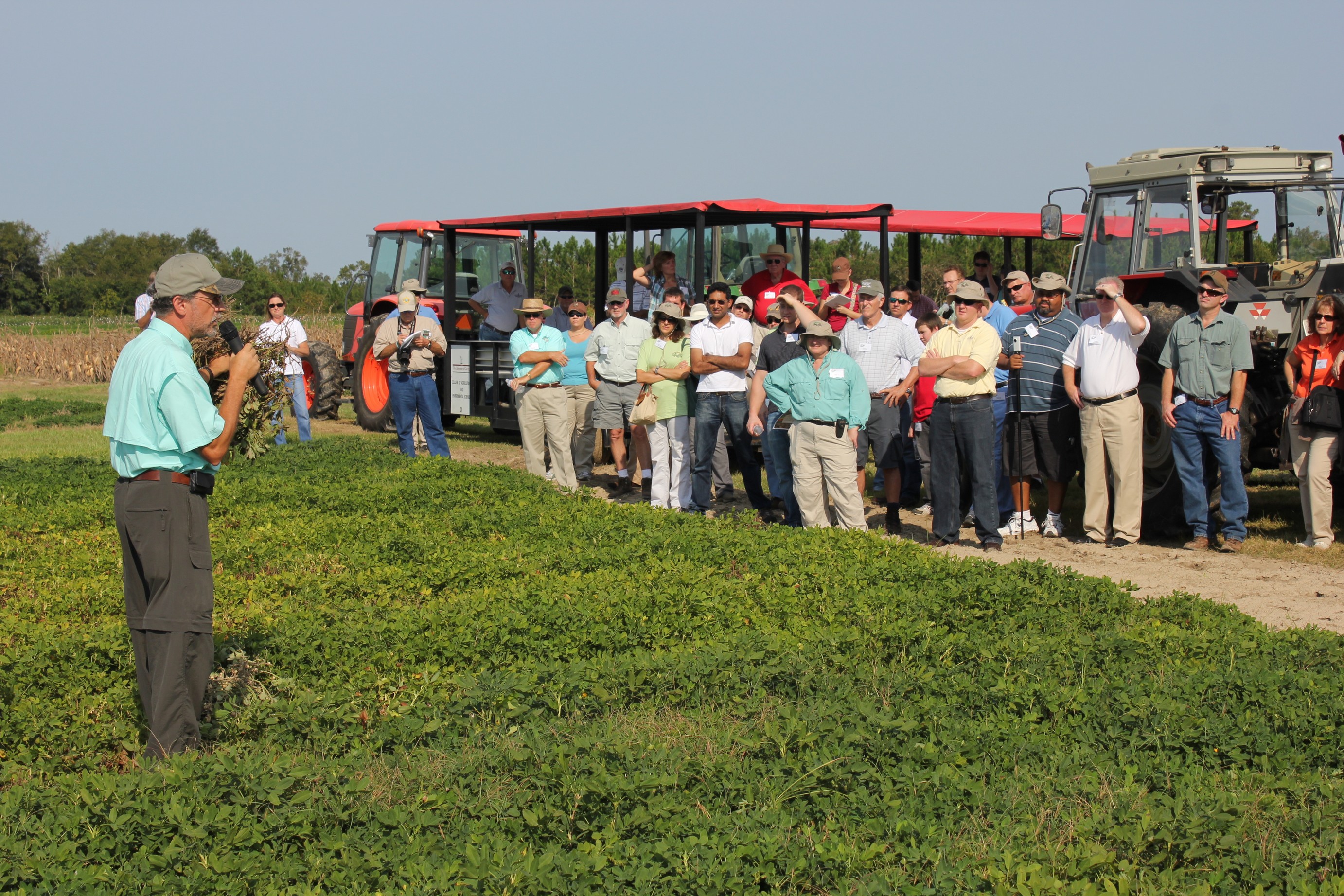
Tim Brenneman, University of Georgia plant pathologist, discusses peanut disease research to Georgia Peanut Tour attendees.
The 2011 Georgia Peanut Tour caravan headed out to learn more about peanut research conducted at the University of Georgia with a visit to the Attapulgus Research and Education Center. The research center is located in the deep Southwest corner of Georgia in Attapulgus, Ga. It is a branch experiment station under the Tifton Coastal Plains Experiment Station. It is about 12 miles south of Bainbridge Georgia and 5 miles north of the Florida line. The southern area of southwest Georgia hosts a wide variety of agricultural production with one of its main crops being peanuts. The research center’s location gives it the opportunity to have in abundance the pest problems that affect peanut production for peanut growers. The warm humid climate coming from the Gulf of Mexico creates a haven for insects, disease, nematodes, and weeds – all of which can adversely impact a peanut crop’s quality and yield. Researchers conduct experiments at Attapulgus for the development of pest management systems that address herbicide, insecticide and disease control to help in the battle that all peanut growers face in producing this crop. Development of new plant varieties with pest resistance traits, keeping breeding lines with these traits renewed each year as well as peanut rotation studies are longer term research projects that are also initiated at the center. All of these programs are geared toward reducing the farmers’ production cost with increased efficiency through research which can be passed on to all consumers of peanuts and peanut products.
